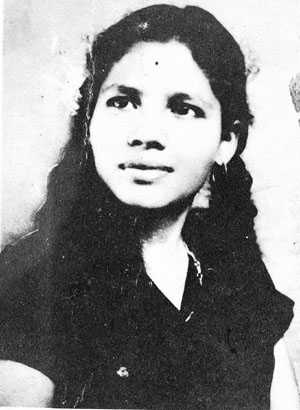Mumbai, May 18
Aruna Shanbaug, a former nurse who lived in a vegetative state for the past 42 years after being brutally sexually assaulted at KEM Hospital here and became the face of the debate on euthanasia in India, died today.
()
66-year-old Aruna, who was one of the comatose patients for the longest duration of time, was put on ventilator support in the ICU of the hospital at Parel after she suffered from a serious bout of pneumonia last week.
Aruna was working as a staff nurse at KEM Hospital when on November 27, 1973, she was raped by ward boy Sohanlal Bhartha Walmiki. He had strangled her with a dog chain. The asphyxiation cut off oxygen supply to her brain, leaving her in a vegetative state since then.
Sohanlal was caught and convicted, and served two concurrent seven-year sentences for assault and robbery, but neither for rape or sexual molestation, nor for the alleged “unnatural sexual offence”.
After her brutal assault, Shanbaug had been the special occupant of a room attached to Ward No. 4 on the ground floor of KEM Hospital. She was attended to by nurses all these years who took care of her food and other necessities.
Nearly 38 years after she suffered the brutal assault, the Supreme Court had on January 24, 2011, responded to the plea for euthanasia filed by journalists Pinki Virani, by setting up a medical panel to examine her.
Virani had moved the Supreme Court seeking euthanasia for Aruna.
The court turned down the mercy killing petition on March 7, 2011.
However, it allowed “passive euthanasia” of withdrawing life support to patients in permanently vegetative state (PVS) but rejected outright active euthanasia of ending life through administration of lethal substances.
Refusing mercy killing of Aruna, the court had laid a set of tough guidelines under which passive euthanasia can be legalised through a high court-monitored mechanism.
Reacting to the news of her death, Virani said, “Aruna got justice after all these painful years. She has found release and peace.”
“While going, Aruna gave India the landmark passive euthanasia law,” she said.
Aruna was laid to rest this evening with hundreds, including nursing fraternity bidding a tearful adieu. The nurses of the KEM hospital at Parel here, who took care of her for long, were keen to perform the last rites of Aruna instead of her kin.
However, a compromise was evolved by which the nurses, other hospital staff and kin of Aruna jointly performed the last rites. KEM hospital dean and Aruna's nephew together lit the funeral pyre.
Aruna was rushed out of her room on last Tuesday after nurses attending to her saw she had difficulty in breathing.
She was moved to the medical ICU and started on antibiotics.
In the 1980s, the city Corporation made an attempt to move her out of the hospital run by the civic body, triggering widespread protests and a strike by the nurses who cared for Aruna.
Her elder sister and only relative Shanta Nayak had expressed inability to take care of her due to financial constraints.
Following the attack on her, nurses in Mumbai had struck work demanding improved conditions for Aruna and better working conditions for themselves.
Virani had narrated the harrowing experience of Aruna in her 1998 non-fiction book called ‘Aruna’s Story’, while Duttakumar Desai wrote the Marathi play, ‘Katha Arunachi’ in 1994–95, which was staged under director Vinay Apte in 2002. — PTI
Unlock Exclusive Insights with The Tribune Premium
Take your experience further with Premium access.
Thought-provoking Opinions, Expert Analysis, In-depth Insights and other Member Only Benefits
Already a Member? Sign In Now










